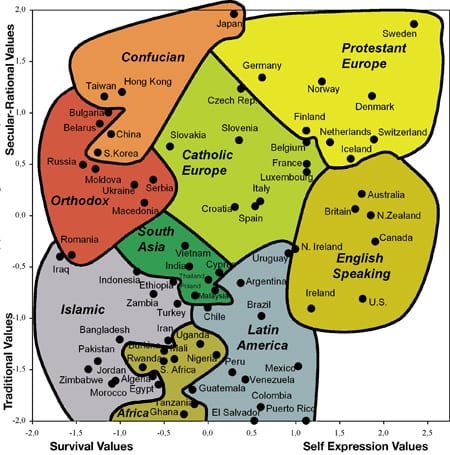This is what I know about love. That it is tested every day, and what is not
renewed is lost. One either chooses to care more or to care less.
Helen Humphreys, The Lost Garden
So what does love have to do with leadership? In a world where leadership is deemed as lacking or at best untrustworthy, my instincts tell me humanity is currently challenged with redefining the value and values of leadership.
In his Harvard Business Review (HBR) blog, Why Great Leaders Are in Short Supply, James Rosebush suggests the following three factors are significant catalysts of the current leadership crisis and its shifting context —
- What was once “privileged access to information” and need-to-know sharing is now, gratis of the Web, public knowledge sharable with anyone and everyone.
- Institutions, both public and private, are increasingly seen as incompetent and greedy thereby providing fewer solid, attractive platforms from which to lead.
- The public demand to align value-based decisions with security and economics finds us with leaders not willing and/or able to provide these skills.
Understanding leadership, much like everything else in today’s complex uncertain world, requires us to dig deeper into our fundamental principles. What was once the foreground of a leader’s responsibility — purpose, strategy, people, measurement, inspiration, results and rewards — has shifted to the background. Although these competencies remain, what has emerged as foreground activities, regardless of leader circumstance or style, are one’s ability to “lead, listen and learn” (Gary Burnison 2012).
Being responsible to and for others, listening from a place of integration, and learning how to transform information and knowledge into usable wisdom are no small feats. In essence, this is the journey of an enlightened master in most spiritual traditions. And if that isn’t enough, today’s leaders must also continually anticipate what is next, navigate course corrections and communicate with passion and inspiration.
Communication leads to community, that is, to understanding, intimacy
and mutual valuing. Rollo May
Our beliefs about leadership are demanding our behaviours to catch up. Burnison’s “absolutes of leadership” are the stepping stones for self-mastery. Plato’s (429 to 423 BC) doctrine “all knowledge is self-knowledge” asserts humanity’s longtime search for a set of fundamental guidelines by which to live and lead. As recently as the 1920s, both Social and Emotional Intelligence emerged as theories set on explaining the understanding and management of self and others.
The world’s most impactful leaders . . . understand the paradox that although
leadership starts with the leader, it’s never about the leader. Gary Burnison
Global values such as self-mastery and self-expression continue to hold significance as demonstrated below in Inglehart and Weizel’s (2010) World Values Survey (WVS) map. The WVS map illustrates cultural (not geographical) proximity relative to shared values. This cross-cultural variation can be depicted across two dimensions – 1) Traditional/Secular-Rational and 2) Survival/Self-Expression.

Source World Values Survey
The vertical axis depicts cultures where religion, authority, parent-child/family ties are valued and divorce, abortion, euthanasia, suicide are rejected (Traditional) or not (Secular-Rational). The horizontal axis registers the impact of industrialization and the polarity between values of Survival (physical and economic security, low tolerance and trust) or Self-expression (well-being, environmental protection, imagination, individual freedom, quality of life). Societies ranking high on self-expression values also rank high on tolerance and interpersonal trust.
What’s most interesting is the cultures that scored high on Secular-Rational/Self-expression values are the same countries that also scored highest on the World Happiness Report 2012.
Happiest Countries 2012:
1. Denmark
2. Finland
3. Norway
4. Netherlands
5. Canada
6. Switzerland
7. Sweden
8. New Zealand
9. Australia
10. Ireland
Others:
11. United States
18. Britain
156. Togo
The Scandinavian countries’ happiness is associated with “the quantity and quality of social relations” on which they can rely. This social capital includes what Maslow’s hierarchy of human needs refers to as “love and belonging” — which brings me full circle. Would it be fair to say that happier cultures are so because they lead with love?
I don’t let myself think this often, but I sometimes wonder if what I felt
most trapped by — love — was, paradoxically, the wilderness I could have
entered. Maybe to be truly wild is to trust completely [ . . . to trust in love].
Helen Humphreys, Wild Dogs
If you are one of the world’s happiest people, what loving acts do you express?
Sources:
Burnison, Gary. 2012. The Twelve Absolutes of Leadership, McGraw-Hill.com, March.
Inglehart, Ronald & Welzel, Christian. 2010. “Changing Mass Priorities: The Link Between Modernization and Democracy.” Perspectives on Politics, June (8-2), page 554.




